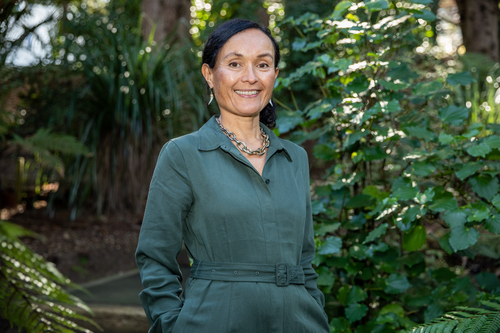Source: University of Waikato
Leading demographer says Covid-19 has exposed short-sighted population approach; calls for Māori interests to be recognised in immigration
One of Aotearoa’s leading demographers says the lack of a long-term plan for dealing with future population change could cost the country dearly.
“While other countries have had to confront the reality of an ageing population and sub-replacement fertility, policymakers here have skirted around the issues and leaned heavily on immigration as a population fix-it,” says Professor Tahu Kukutai from the National Institute of Demographic and Economic Analysis at the University of Waikato.
“Covid-19 is now showing just how short-sighted that approach is.”
Professor Kukutai is part of a team of researchers coming to the end of a six-year research project looking at diversity in Aotearoa New Zealand. She says she has been struck by the lack of a demographic lens in policy and planning.
“For all the emphasis on evidence-based policy-making, there is very little understanding of how our changing demography will affect our futures. The result is an ad hoc approach that largely misses the mark, and valuable opportunities.”
Professor Kukutai says one of the missed opportunities is under-investment in Māori and Pacific communities. “Both of these populations are youthful, have higher fertility and will continue to grow, even as the Pākehā population stagnates and then declines. That’s a demographic gift that is specific to Aotearoa. But it’s one that continues to be wasted.”
Her work for the Capturing the Diversity Dividend of Aotearoa/New Zealand (CaDDANZ) research programme has largely focused on Māori dimensions, and she says she has been struck by the exclusion of Māori from decisions relating to immigration.
“Until very recently, research into diversity and migration has tended to treat Māori as just another minority – rather than as partners to Te Tiriti o Waitangi and Indigenous hosts to migrants,” says Professor Kukutai.
“As Treaty partners, Māori should have input into what our future migration settings should look like.”
Earlier this month, the Government announced a Productivity Commission inquiry into the impact of immigration on the labour market, housing and natural environment. Professor Kukutai says it is hugely encouraging to see Te Tiriti o Waitangi included in the terms of reference for the inquiry.
“It’s the first time I’ve seen Te Tiriti referenced in relation to immigration, which is a positive first step. But real change won’t happen unless we include Māori at the table when it comes to decision making.”
She says there is tremendous value to be gained from a Tiriti-centred approach.
“What it will mean is a policy that is underpinned by core values such as manaakitanga and whanaungatanga, but still addresses important economic and environmental factors.”
Professor Kukutai says CaDDANZ research has identified some blind spots in how we view diversity in Aotearoa New Zealand.
“In diversity discourse, Māori and migrants are often positioned in competition with each other – but this couldn’t be further from the truth.
“Our research shows Māori are largely supportive of ethnic diversity and multiculturalism. In fact, it’s actually Pākehā New Zealanders who are out of step with the rest of the country when it comes to their views on multiculturalism and ethnic identity. They are also the group least likely to see Māori culture as being very important.
“Most of the time diversity research is focused on minority groups and indigenous peoples, and positions these groups as the problems to be solved. But I would argue that you can’t truly get to grips with an issue unless you look at the attitudes, values and behaviours of the dominant group. How are they shaping decision-making? And for whose benefit?”
“We all have a vested interest in this kaupapa. It’s about the kind of country we want to leave for our mokopuna’s mokopuna – and I believe it should be one that’s fair, equitable, connected and rooted in our collective national identity,” concludes Professor Kukutai.
Funded by MBIE, CaDDANZ is staffed by teams from the University of Waikato, Massey University and MOTU.



